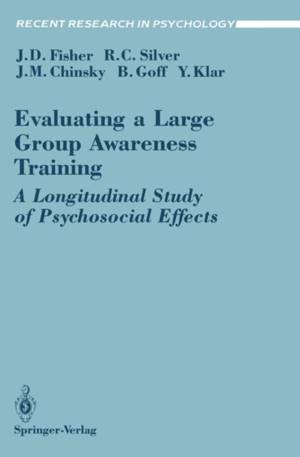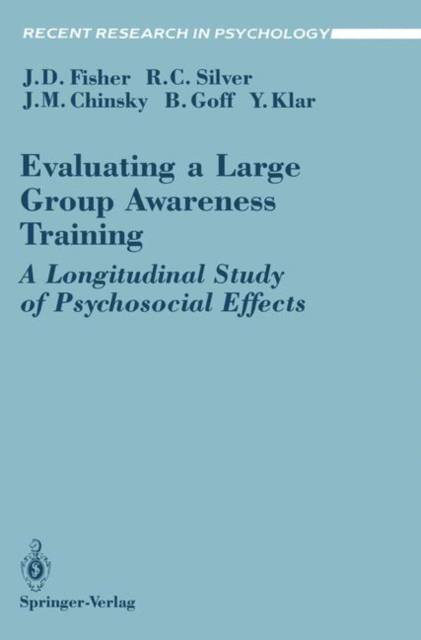
Je cadeautjes zeker op tijd in huis hebben voor de feestdagen? Kom langs in onze winkels en vind het perfecte geschenk!
- Afhalen na 1 uur in een winkel met voorraad
- Gratis thuislevering in België vanaf € 30
- Ruim aanbod met 7 miljoen producten
Je cadeautjes zeker op tijd in huis hebben voor de feestdagen? Kom langs in onze winkels en vind het perfecte geschenk!
- Afhalen na 1 uur in een winkel met voorraad
- Gratis thuislevering in België vanaf € 30
- Ruim aanbod met 7 miljoen producten
Zoeken
Evaluating a Large Group Awareness Training
A Longitudinal Study of Psychosocial Effects
Jeffrey D Fisher, Roxane C Silver, Jack M Chinsky, Barry Goff, Yechiel Klar
€ 167,95
+ 335 punten
Omschrijving
Large Group Awareness Training: An Historical Context Groups associated with the human potential movement have been a controversial feature of American life during the last three decades. In the 1950's and 1960's, the movement was dominated by various types of small groups (SGs), which included sensitivity training groups, encounter groups, as well as several others (see Lieberman, Yalom, & Miles, 1973). Some people viewed SGs as an effective means for attaining personal and organizational growth, and Carl Rogers, one of the founders of this movement, labeled small groups as . . the most rapidly spreading social invention of the century, and probably the most potent" (Rogers, 1970). In contrast, others attacked SGs as "the most extreme exhibition thus far of man's talent for reducing, distorting, evading, and vulgarizing his own reality" (Koch, 1973, p. 639). Nevertheless, SGs generally became an accepted tool for personal development and were incorporated into university curricula and mana- gerial training programs. During the 1970's the prevalence and appeal of SGs declined (cf. Back, 1978), and at about the same time, large group awareness training programs (LGATs) appeared. ' LGATs are offered to the general public by profit-making or- ganizations and examine philosophical, psychological and ethical issues concern- ing personal effectiveness, decision-making, personal responsibility and commit- ment After addressing these topics, participants are encouraged to apply their recently attained insights to their lives.
Specificaties
Betrokkenen
- Auteur(s):
- Uitgeverij:
Inhoud
- Aantal bladzijden:
- 142
- Taal:
- Engels
- Reeks:
Eigenschappen
- Productcode (EAN):
- 9780387973203
- Verschijningsdatum:
- 23/07/1990
- Uitvoering:
- Paperback
- Formaat:
- Trade paperback (VS)
- Afmetingen:
- 156 mm x 234 mm
- Gewicht:
- 226 g

Alleen bij Standaard Boekhandel
+ 335 punten op je klantenkaart van Standaard Boekhandel
Beoordelingen
We publiceren alleen reviews die voldoen aan de voorwaarden voor reviews. Bekijk onze voorwaarden voor reviews.









